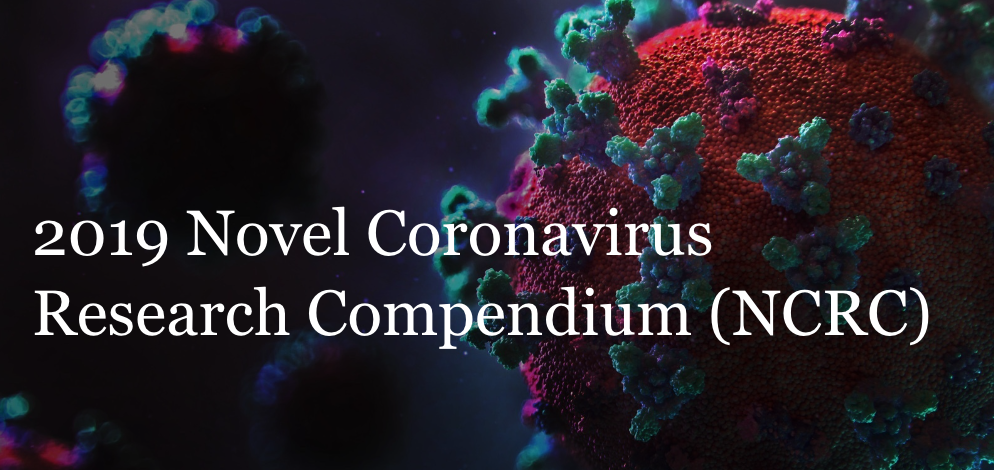Safety and Efficacy of NVX-CoV2373 Covid-19 Vaccine
This article has been Reviewed by the following groups
Discuss this preprint
Start a discussion What are Sciety discussions?Listed in
- Evaluated articles (ScreenIT)
- Evaluated articles (NCRC)
- High interest articles (NCRC)
- Articles that showcase interesting usage of Sciety (BlueReZZ)
Abstract
Article activity feed
-
-

Our take
This study, available as a preprint and thus not yet peer-reviewed, was a phase 3 trial of the Novavax NVX-CoV2373 recombinant SARS-CoV-2 nanoparticle vaccine. Findings demonstrated that the two-dose vaccine regimen of NVX-CoV2373 had a favorable safety profile and high efficacy against a blend of viral strains as well as against the UK variant, specifically. This is the first evidence of a protein-based, adjuvanted vaccine being able to provide protection against both the prototype strain and UK variant of SARS-CoV-2. The study population was overwhelming white (94%), limiting the generalizability of these findings to other racial/ethnic groups, and the study was underpowered to assess vaccine efficacy against individual specific strains of SARS-CoV-2.
Study design
randomized-controlled-trial
Study …
Our take
This study, available as a preprint and thus not yet peer-reviewed, was a phase 3 trial of the Novavax NVX-CoV2373 recombinant SARS-CoV-2 nanoparticle vaccine. Findings demonstrated that the two-dose vaccine regimen of NVX-CoV2373 had a favorable safety profile and high efficacy against a blend of viral strains as well as against the UK variant, specifically. This is the first evidence of a protein-based, adjuvanted vaccine being able to provide protection against both the prototype strain and UK variant of SARS-CoV-2. The study population was overwhelming white (94%), limiting the generalizability of these findings to other racial/ethnic groups, and the study was underpowered to assess vaccine efficacy against individual specific strains of SARS-CoV-2.
Study design
randomized-controlled-trial
Study population and setting
This study was a phase 3 trial of the Novavax NVX-CoV2373 recombinant SARS-CoV-2 nanoparticle vaccine. NVX-CoV2373 is comprised of a trimeric full-length SARS-CoV-2 spike glycoprotein and Matrix-M adjuvant. The trial assessed safety and efficacy of NVX-CoC2373 in preventing COVID-19 in participants in the UK, at a time when the UK variant (B.1.1.7) was beginning to circulate more widely. Individuals with a history of documented COVID-19 were excluded from participation. 14,039 participants meeting criteria for the per-protocol efficacy population, were randomized 1:1, with 7020 in the vaccine group and 7019 in the placebo group. Participants at the 33 sites across the UK were between the ages of 18-84 years, and received two 5 ug intramuscular doses, 21 days apart. Solicited adverse events were recorded for 8 days after each dose, and unsolicited adverse events were recorded through 28 days after the second dose. The primary endpoint was symptomatic COVID-19 confirmed by qPCR, with onset at least 7 days after the second vaccination in serologically negative patients. At symptom onset, respiratory specimens were collected daily f or 3 days in order to confirm infection.
Summary of main findings
The most commonly reported adverse events were injection site pain, headache, muscle pain, and fatigue. These were all mild and of short duration. Adverse events were more commonly reported in the vaccine group compared to the placebo group, and more common after the second dose compared to the first dose. Additionally, they were more common among younger vaccine recipients (18-64 years) compared to older recipients (>64 years). Fever was only reported in 2% and 4.8% of participants after the first and second dose of vaccine, respectively. Out of 14,039 participants, there were few cases of virologically confirmed, symptomatic, mild, moderate or severe COVID-19 with onset at least 7 days after the second dose. There were 10 cases in the vaccinated group and 96 cases in the placebo group, resulting in an estimated 89.7% vaccine efficiency. Vaccine efficacy among patients >64 years was 88.9%. Post-hoc analysis of patient respiratory swab samples collected identified 29 cases of COVID-19 where the isolated strain was the prototype strain, 66 cases where it was the UK variant, and 11 cases where the strain was unknown, respectively. Based on these identifications, vaccine efficacy against the prototype strain was 96.4%, while efficacy against UK variant was 86.3%.
Study strengths
44.6% of participants in the study had at least one co-morbid condition, which is an important variable to include in SARS-CoV-2 vaccine trials due to the fact that COVID-19 can be particularly dangerous for individuals with co-morbidities.
Limitations
Over 94% of participants in this trial where white, limiting the potential generalizability of these findings to non-white individuals. This vaccine should be tested on a more diverse population of individuals in future trials. Next, the viral strains from patient samples were sequenced and identified post-hoc, so the trial was not powered to assess efficacy of the vaccine against individual strains of SARS-CoV-2. The trial began in September 2020, while the UK (B.1.1.7) variant was not identified and sequenced until October 2020. Also, vaccine efficacy estimates were derived from a short duration of observation time (~ 3 months). Therefore, this study requires ongoing follow-up to determine the durability of the effectiveness. Interestingly, in a previous analysis in South Africa from the same group, serologically positive individuals were excluded from analysis, but that was not done here.
Value added
Report of a recombinant vaccine demonstrating high efficacy against the UK variant in a phase 3 clinical trial.
-

SciScore for 10.1101/2021.05.13.21256639: (What is this?)
Please note, not all rigor criteria are appropriate for all manuscripts.
Table 1: Rigor
Ethics Consent: All participants provided written informed consent before enrollment in the trial.
IRB: The trial protocol was approved by the North West—Greater Manchester Central Research Ethics Committee (Ref 20/NW/03/99) and was performed in accordance with the International Council for Harmonisation Good Clinical Practice guidelines (see protocol in the Supplementary Appendix).Sex as a biological variable Eligible participants were men and non-pregnant women 18 to 84 years old (inclusive) who were healthy or had stable chronic medical conditions, including but not limited to human immunodeficiency virus (and receiving highly active antiretroviral therapy) and cardiac and respiratory diseases. Ra… SciScore for 10.1101/2021.05.13.21256639: (What is this?)
Please note, not all rigor criteria are appropriate for all manuscripts.
Table 1: Rigor
Ethics Consent: All participants provided written informed consent before enrollment in the trial.
IRB: The trial protocol was approved by the North West—Greater Manchester Central Research Ethics Committee (Ref 20/NW/03/99) and was performed in accordance with the International Council for Harmonisation Good Clinical Practice guidelines (see protocol in the Supplementary Appendix).Sex as a biological variable Eligible participants were men and non-pregnant women 18 to 84 years old (inclusive) who were healthy or had stable chronic medical conditions, including but not limited to human immunodeficiency virus (and receiving highly active antiretroviral therapy) and cardiac and respiratory diseases. Randomization Trial Procedures: Participants were randomly assigned in a 1:1 ratio via block randomization to receive two doses of NVX-CoV2373 or placebo (normal saline), 21 days apart, using a centralized Interactive Response Technology system according to pre-generated randomization schedules. Blinding not detected. Power Analysis not detected. Table 2: Resources
No key resources detected.
Results from OddPub: We did not detect open data. We also did not detect open code. Researchers are encouraged to share open data when possible (see Nature blog).
Results from LimitationRecognizer: We detected the following sentences addressing limitations in the study:This trial has several limitations. Although approximately 7500 participants received NVX-CoV2373, it is not possible to exclude the occurrence of rare adverse events. Such events may, however, be captured through the ongoing follow-up of participants, which is planned to continue until 12 months after the second dose of vaccine and will also be assessed in the larger PREVENT-19 phase 3 trial.15 Similarly, the efficacy estimates reported here are derived from a relatively short duration of observation (median 3 months after dose 2). The ongoing follow-up will therefore allow determination of the durability of vaccine efficacy, continued assessment of severe cases, and the assessment of efficacy against asymptomatic disease. A further limitation is the lack of sequencing data on study isolates, although the use of S gene target failure, as detected by the Thermo Fisher TaqPath™ assay used in DHS Public Health England has proved to be a good proxy for the B.1.1.7 variants.16 Additionally, a convenience sample of isolates from this study were sequenced by the Covid-19 genomics UK consortium and demonstrated a similar proportion of B.1.1.7 variants as detected by PCR.17 The results of this trial provide further evidence that both prototype and B.1.1.7 Covid-19 can be prevented by immunization, providing the first evidence for a protein-based, adjuvanted vaccine. NVX-CoV2373 can be stored at standard refrigerator temperatures and has the potential to induce a broad epitope respons...
Results from TrialIdentifier: We found the following clinical trial numbers in your paper:
Identifier Status Title NCT04583995 Recruiting A Study Looking at the Effectiveness, Immune Response, and S… Results from Barzooka: We did not find any issues relating to the usage of bar graphs.
Results from JetFighter: We did not find any issues relating to colormaps.
Results from rtransparent:- Thank you for including a conflict of interest statement. Authors are encouraged to include this statement when submitting to a journal.
- Thank you for including a funding statement. Authors are encouraged to include this statement when submitting to a journal.
- No protocol registration statement was detected.
Results from scite Reference Check: We found no unreliable references.
-


